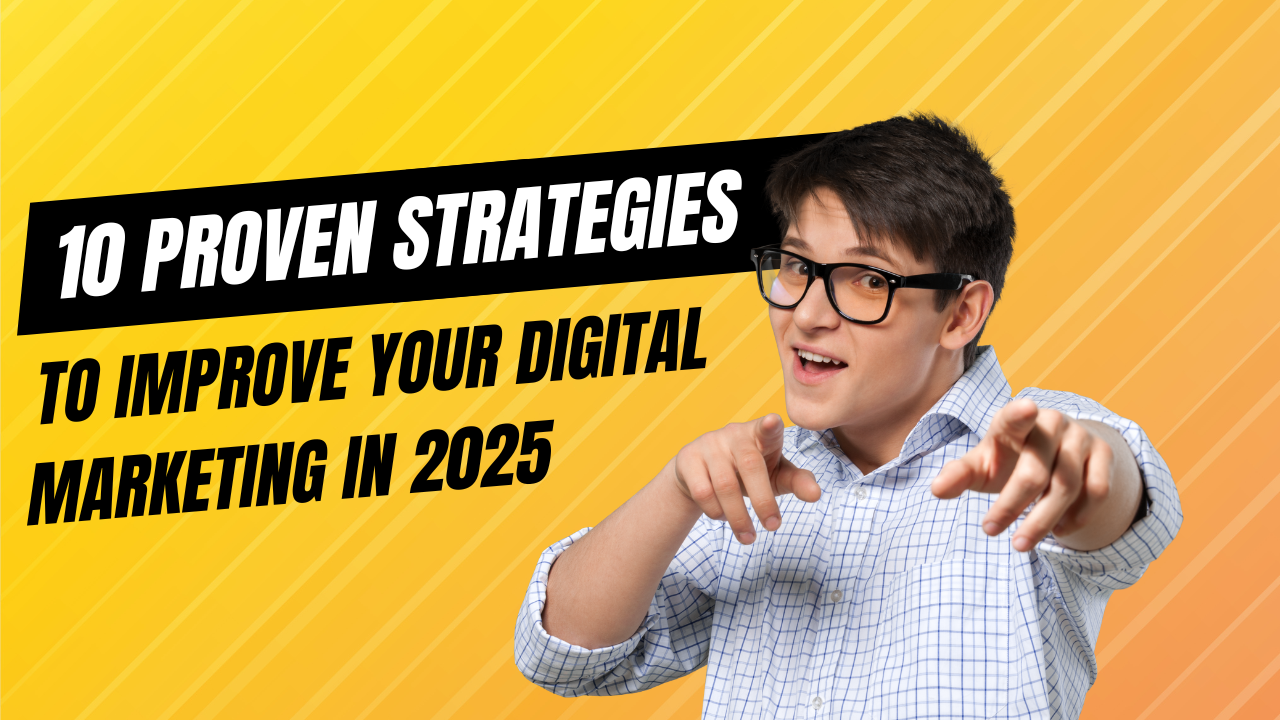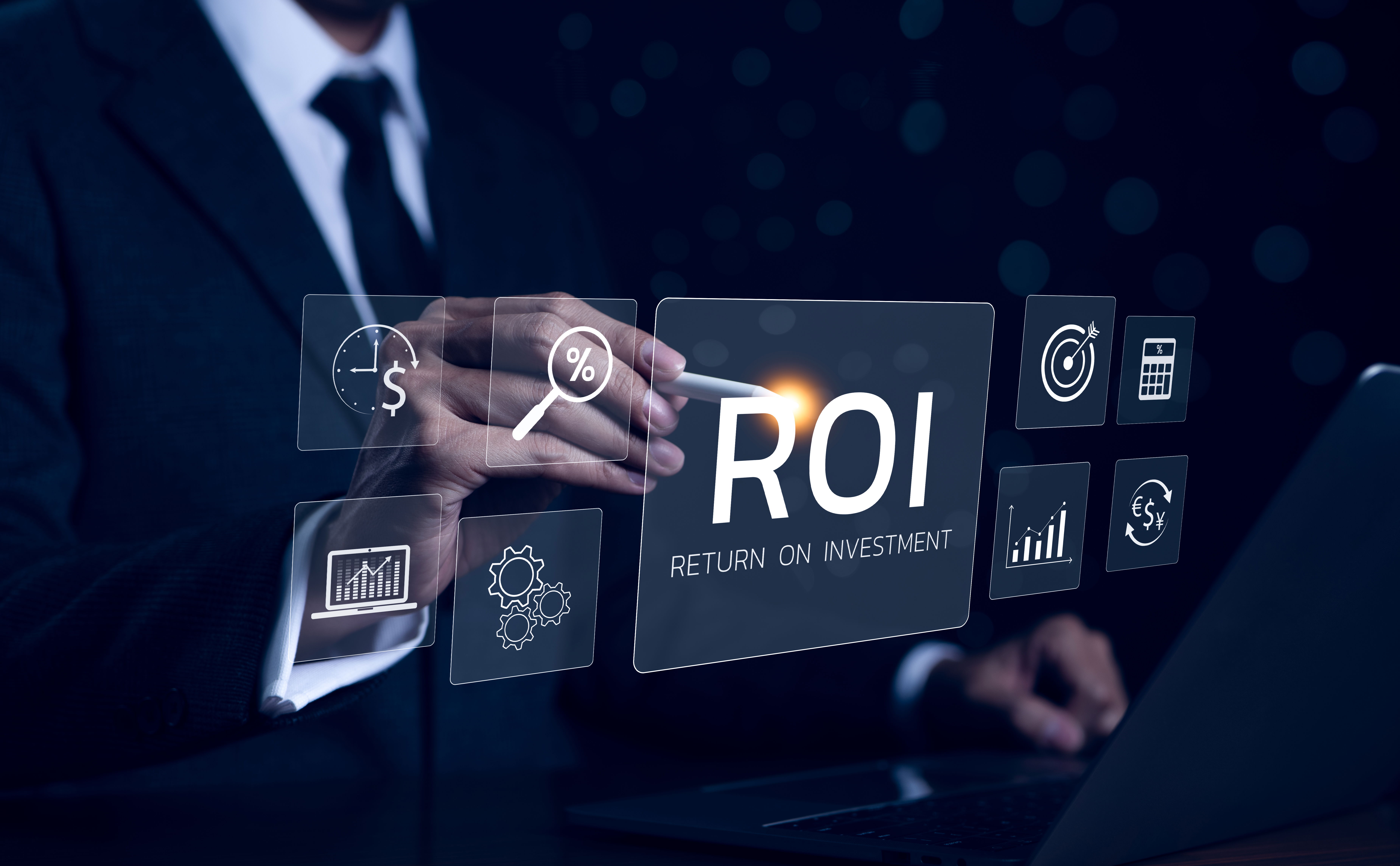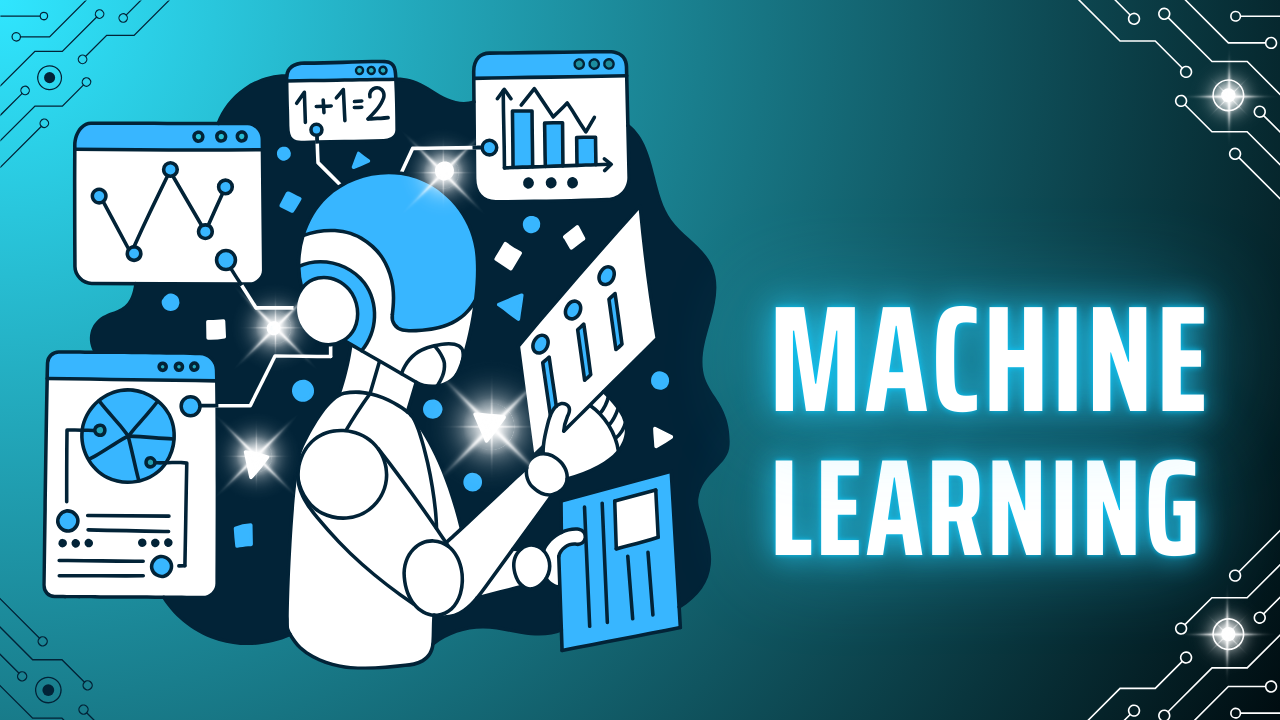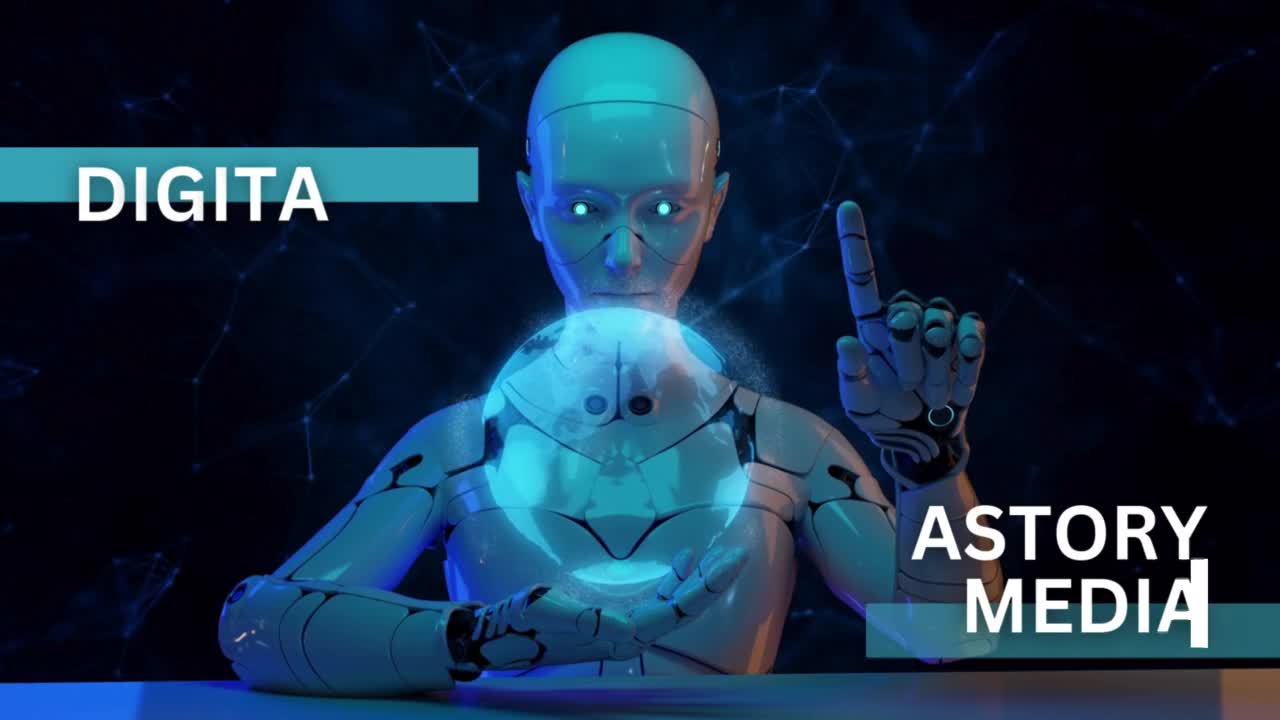
10 Proven Strategies to Improve Your Digital Marketing in 2025
As we approach 2025, the digital marketing landscape continues to evolve at a rapid pace.
With new technologies, changing consumer behaviours, and emerging digital channels, it's crucial for businesses to stay ahead of the curve and adapt their digital marketing strategies accordingly.
This article will explore ten proven strategies to enhance your digital marketing efforts and achieve success in the digital world of 2025.
What are the most effective digital marketing strategies for 2025?
In 2025, the most effective digital marketing strategies will revolve around personalization, automation, and data-driven decision-making.
Content marketing will continue to be a cornerstone of successful digital marketing campaigns, as businesses strive to create valuable and engaging content that resonates with their target audience.
Email marketing, despite being one of the older digital marketing tactics, will remain a powerful tool for nurturing leads and driving conversions.
Social media marketing will evolve to become even more interactive and immersive, with platforms offering new features and formats for brands to connect with their followers.
How can content marketing drive results in 2025?
Content marketing will play a crucial role in driving results for businesses in 2025.
The goal of content marketing will be to create high-quality, relevant, and valuable content that addresses the needs and pain points of your target audience.
By focusing on creating a comprehensive content marketing strategy, businesses can improve their brand awareness, establish thought leadership, and generate qualified leads.
To maximize the impact of your content marketing efforts, it's essential to diversify your content formats, including blog posts, videos, podcasts, and interactive content.
Additionally, leveraging user-generated content and encouraging audience participation will help foster a sense of community around your brand.
What role will AI play in digital marketing strategies?
Artificial Intelligence (AI) will be a game-changer in digital marketing strategies for 2025.

AI-powered tools and algorithms will enable digital marketers to analyse vast amounts of data, predict consumer behaviour, and personalize marketing messages at scale.
Machine learning algorithms will help optimize ad targeting, improve customer segmentation, and enhance the overall effectiveness of digital marketing campaigns.
AI will also play a significant role in content creation, with natural language processing tools assisting in generating blog posts, social media updates, and even personalized email marketing campaigns.
As AI continues to advance, it will become an indispensable asset for digital marketers looking to stay competitive in the fast-paced digital marketing landscape.
How to leverage influencer marketing for maximum impact?
Influencer marketing will continue to be a powerful digital marketing tactic in 2025, but its implementation will evolve.
To leverage influencer marketing for maximum impact, businesses should focus on building long-term partnerships with influencers who align with their brand values and target audience.
Micro-influencers and nano-influencers will gain more prominence, as they often have higher engagement rates and more niche audiences.
Authenticity will be key, with consumers becoming increasingly savvy at identifying sponsored content.
To create successful influencer marketing campaigns, brands should collaborate with influencers to create genuine, value-driven content that resonates with their followers.
Additionally, leveraging user-generated content from influencer partnerships can help amplify the reach and impact of your marketing efforts.
How to create a digital marketing strategy that aligns with your business goals?
Creating a digital marketing strategy that aligns with your business goals is crucial for success in 2025.
To start, you need to clearly define your objectives and understand how digital marketing can support your overall business strategy.
This involves identifying your target audience, analysing your competitors, and determining the key performance indicators (KPIs) that will measure your success.
A well-crafted digital marketing plan should integrate various digital channels and tactics to create a cohesive and effective marketing campaign.
What are the key components of a successful digital marketing plan?
A successful digital marketing plan in 2025 will include several key components.
First, a thorough market analysis and audience segmentation will help you understand your target market and tailor your marketing efforts accordingly.
Next, you'll need to define your unique value proposition and brand messaging to differentiate yourself from competitors.
Your plan should outline the specific digital marketing channels you'll use, such as social media, email marketing, content marketing, and paid advertising.
It's also essential to include a content strategy that outlines the types of content you'll create and how it will be distributed across various digital channels.
Finally, your plan should include a budget allocation, timeline, and resource requirements for implementing your digital marketing strategies.
How to set measurable marketing goals for your digital campaigns?
Setting measurable marketing goals is crucial for evaluating the success of your digital campaigns in 2025.
Start by aligning your digital marketing goals with your overall business objectives. Use the SMART framework to ensure your goals are Specific, Measurable, Achievable, Relevant, and Time-bound.

Examples of measurable marketing goals include increasing website traffic by a certain percentage, improving conversion rates, growing your email subscriber list, or increasing social media engagement.
It's important to establish baseline metrics and use digital marketing tools and analytics platforms to track your progress towards these goals.
Regularly reviewing and adjusting your goals based on performance data will help you optimize your digital marketing efforts and achieve better results.
What tools can help in building your digital marketing strategy?
In 2025, a wide array of digital marketing tools will be available to help build and execute your strategy.
Marketing software suites will offer comprehensive solutions for managing various aspects of your digital marketing efforts, from content creation to campaign management and analytics.
Customer relationship management (CRM) systems will be essential for tracking customer interactions and personalizing marketing messages.
Social media management tools will help streamline your social media marketing efforts across multiple platforms.
Content management systems (CMS) will facilitate the creation and distribution of content across your digital channels.
Additionally, marketing automation platforms will enable you to create personalized, trigger-based marketing campaigns that nurture leads through the sales funnel.
Analytics tools will be crucial for measuring the performance of your digital marketing campaigns and making data-driven decisions to improve your strategy.
Which digital marketing channels should you focus on in 2025?
In 2025, the digital marketing landscape will continue to evolve, with new channels emerging and existing ones adapting to changing consumer behaviours.
While the specific channels you focus on will depend on your target audience and business goals, it's important to maintain a presence across multiple digital marketing channels to create a cohesive and effective marketing campaign.
Social media marketing will remain a crucial component of any digital marketing strategy, with platforms offering increasingly sophisticated targeting and advertising options.
Email marketing will continue to be a valuable channel for nurturing leads and driving conversions.
Content marketing, through various formats such as blog posts, videos, and podcasts, will be essential for building brand awareness and establishing thought leadership.
How to optimize your social media marketing efforts?
To optimize your social media marketing efforts in 2025, it's crucial to stay up-to-date with the latest features and trends on each platform.
Focus on creating engaging, platform-specific content that encourages interaction and shares.
Utilize advanced targeting options to reach your ideal audience and leverage paid advertising to boost your organic reach.
Implement a consistent posting schedule and use social media management tools to streamline your efforts across multiple platforms.
Engage with your followers by responding to comments and messages promptly, and use social listening tools to monitor brand mentions and industry conversations.
Incorporate user-generated content and influencer partnerships to increase authenticity and expand your reach.

Finally, regularly analyse your social media metrics to identify what's working and adjust your strategy accordingly.
What are the emerging digital marketing channels to watch?
As we look towards 2025, several emerging digital marketing channels are worth watching.
Virtual and augmented reality (VR/AR) experiences will become more prevalent, offering new ways for brands to engage with consumers.
Voice search optimization will be crucial as more people use digital devices with voice assistants.
The Internet of Things (IoT) will create new opportunities for personalized marketing through connected devices.
Messaging apps and chatbots will continue to evolve as important channels for customer service and marketing.
Streaming platforms and over-the-top (OTT) media services will offer new advertising opportunities.
Additionally, blockchain technology may impact digital marketing by providing more transparent and secure ways to manage user data and digital advertising.
How to integrate multiple channels for a cohesive marketing campaign?
Creating a cohesive marketing campaign across multiple digital channels is essential for success in 2025.
Start by developing a consistent brand message and visual identity that can be adapted across different platforms.
Use a central content hub, such as your website or blog, as the foundation for your content marketing strategy, and repurpose content for various channels.
Implement cross-channel retargeting to reach potential customers across different touchpoints.
Utilize marketing automation tools to create seamless customer journeys that span multiple channels.
Ensure that your messaging and offers are consistent across all channels while tailoring the content format to suit each platform.
Regularly analyse the performance of your integrated campaigns and use these insights to optimize your channel mix and messaging for maximum impact.
How can you measure the success of your digital marketing efforts?
Measuring the success of your digital marketing efforts in 2025 will be crucial for optimizing your strategies and demonstrating ROI.

The key to effective measurement lies in identifying the right metrics that align with your business goals and using advanced analytics tools to track and analyse your performance across various digital marketing channels.
By leveraging data-driven insights, you can continually refine your digital marketing tactics and improve your overall marketing campaign effectiveness.
What key performance indicators (KPIs) should you track?
In 2025, the KPIs you track will depend on your specific marketing goals and the digital marketing channels you're using.
However, some essential KPIs to consider include website traffic, conversion rates, customer acquisition cost (CAC), customer lifetime value (CLV), engagement rates on social media, email open and click-through rates, and return on ad spend (ROAS).
For content marketing, you might track metrics such as time on page, bounce rate, and social shares.
Search engine optimization (SEO) efforts can be measured through organic traffic, keyword rankings, and backlink quality.
It's important to focus on metrics that directly impact your business objectives and provide actionable insights for improving your digital marketing strategies.
How to use analytics to improve your digital marketing tactics?
Using analytics to improve your digital marketing tactics in 2025 will involve leveraging advanced data analysis tools and techniques.
Start by implementing robust tracking across all your digital marketing channels to collect comprehensive data on user behaviour and campaign performance.
Use marketing analytics platforms to consolidate data from various sources and gain a holistic view of your marketing efforts.
Implement A/B testing and multivariate testing to optimize your marketing messages, designs, and user experiences.
Utilize predictive analytics to forecast trends and anticipate customer needs.
Implement attribution modelling to understand which touchpoints are most influential in driving conversions.
Regularly conduct in-depth analysis of your data to identify patterns, trends, and opportunities for improvement.
Use these insights to refine your targeting, messaging, and channel allocation to maximize the effectiveness of your digital marketing tactics.
What tools are best for measuring digital marketing ROI?
In 2025, a variety of sophisticated tools will be available for measuring digital marketing ROI.
Google Analytics will likely remain a cornerstone for website analytics, offering advanced features for tracking user behaviour and conversion paths.
Customer relationship management (CRM) systems integrated with marketing automation platforms will provide valuable insights into the customer journey and lifetime value.
Social media analytics tools will offer in-depth metrics on engagement and reach across various platforms.
Attribution modelling software will help marketers understand the impact of different touchpoints on conversions.
Marketing mix modelling tools will assist in optimizing budget allocation across channels.
Additionally, AI-powered analytics platforms will emerge, offering predictive insights and automated recommendations for improving marketing ROI.
When selecting tools for measuring digital marketing ROI, it's important to choose solutions that integrate well with your existing marketing stack and provide actionable insights aligned with your business goals.
What digital marketing skills will be crucial in 2025?
As the digital marketing landscape continues to evolve, the skills required for success in 2025 will be a blend of technical expertise, creative thinking, and strategic planning.
Digital marketers will need to be adaptable and willing to continuously learn and update their skills to keep pace with emerging technologies and changing consumer behaviours.
The ability to analyse and interpret data will be more important than ever, as marketing decisions become increasingly data-driven.
At the same time, creativity will remain a valuable asset in crafting compelling marketing messages and campaigns that stand out in a crowded digital space.
How to stay updated with the latest digital marketing trends?
Staying updated with the latest digital marketing trends in 2025 will be crucial for maintaining a competitive edge.
To keep abreast of industry developments, digital marketers should regularly follow reputable marketing blogs, podcasts, and news sites.
Attending industry conferences and webinars will provide opportunities to learn from experts and network with peers.
Participating in online communities and forums dedicated to digital marketing can offer valuable insights and discussions on emerging trends.
Following thought leaders and influencers in the digital marketing space on social media platforms can provide real-time updates on industry changes.
Additionally, subscribing to marketing research reports and whitepapers from leading organizations can offer in-depth analysis of market trends and forecasts.
Continuously experimenting with new tools and techniques in your own marketing efforts will also help you stay ahead of the curve and gain practical experience with emerging trends.
What technical skills should digital marketers develop?
In 2025, digital marketers will need to possess a diverse set of technical skills to excel in their roles.
Data analysis and interpretation will be fundamental, with proficiency in tools like Google Analytics and other advanced analytics platforms being essential.
Understanding of marketing automation platforms and customer relationship management (CRM) systems will be crucial for implementing personalized marketing campaigns.
Knowledge of search engine optimization (SEO) techniques and paid advertising platforms will remain important for driving traffic and conversions.
Familiarity with content management systems (CMS) and basic web development skills will be valuable for creating and optimizing digital assets.
As artificial intelligence and machine learning become more prevalent in marketing, understanding these technologies and their applications will be advantageous.

Additionally, skills in marketing technology integration and API usage will be important for creating seamless marketing ecosystems.
How to balance creativity and data-driven decision making in digital marketing?
Balancing creativity and data-driven decision making will be a key challenge for digital marketers in 2025.
While data analysis provides valuable insights into consumer behaviour and campaign performance, creativity is essential for crafting compelling marketing messages and standing out in a crowded digital landscape.
To strike the right balance, start by using data to inform your creative strategy, identifying trends and preferences that can guide your creative direction.
Implement A/B testing to validate creative concepts and refine your approach based on performance data.
Use predictive analytics to anticipate consumer needs and preferences, allowing you to create more targeted and relevant creative content.
Encourage collaboration between creative teams and data analysts to ensure that insights are effectively translated into compelling marketing materials.
Remember that while data can provide valuable guidance, it should not stifle innovation or risk-taking in your creative process.
The most successful digital marketing campaigns will be those that effectively combine data-driven insights with creative storytelling and emotional appeal.
How to create a cost-effective digital marketing campaign?
Creating a cost-effective digital marketing campaign in 2025 will require a strategic approach that maximizes your resources and focuses on high-impact tactics.
The key to developing a budget-friendly campaign lies in carefully selecting the right digital marketing channels, leveraging automation and AI-powered tools, and continuously optimizing your efforts based on performance data.
By focusing on ROI and efficiency, you can create effective digital marketing campaigns that deliver results without breaking the bank.
What are some budget-friendly digital marketing tactics?
In 2025, several budget-friendly digital marketing tactics will be available to businesses of all sizes.
Content marketing will remain a cost-effective way to attract and engage audiences, with blogging, video content, and podcasting offering opportunities to create valuable content without significant investment.
Social media marketing, particularly organic strategies focused on community building and engagement, can be highly effective with minimal financial outlay.
Email marketing will continue to offer excellent ROI, allowing businesses to nurture leads and drive conversions at a low cost.
Influencer marketing, particularly when working with micro-influencers or nano-influencers, can provide targeted exposure without the high fees associated with celebrity endorsements.
Search engine optimization (SEO) efforts, while requiring time and expertise, can drive long-term organic traffic without ongoing advertising costs.
User-generated content campaigns can help create authentic marketing materials while engaging your audience.
Additionally, leveraging free or low-cost marketing tools and platforms can help streamline your efforts and reduce expenses.
How to maximize ROI in your digital marketing efforts?
Maximizing ROI in your digital marketing efforts in 2025 will require a data-driven approach and continuous optimization.
Start by clearly defining your marketing goals and aligning them with your overall business objectives.
Implement robust tracking and analytics across all your digital marketing channels to accurately measure performance and attribute conversions.
Focus on customer segmentation and personalization to ensure your marketing messages resonate with your target audience.
Utilize marketing automation tools to streamline processes and improve efficiency.
Regularly conduct A/B testing to optimize your marketing messages, designs, and user experiences.
Implement a multi-touch attribution model to understand the impact of different touchpoints in the customer journey.

Continuously analyse your marketing data to identify high-performing channels and tactics, and reallocate your budget accordingly.
Consider adopting a growth hacking mindset, experimenting with innovative tactics to drive rapid growth.
Finally, focus on customer retention and lifetime value, as retaining existing customers is often more cost-effective than acquiring new ones.
When should you consider outsourcing your digital marketing?
In 2025, outsourcing your digital marketing can be a strategic decision to access specialized expertise and resources while managing costs.
Consider outsourcing when you lack in-house expertise in specific areas of digital marketing, such as SEO, PPC advertising, or content creation.
Outsourcing can also be beneficial when you need to scale your marketing efforts quickly or want to free up internal resources to focus on core business activities.
If you're entering new markets or launching new products, working with external specialists can provide valuable insights and strategies.
When considering outsourcing, evaluate the potential agency's track record, industry expertise, and ability to align with your brand values.
It's important to maintain clear communication and establish key performance indicators to measure the success of the outsourced efforts.
Remember that a hybrid approach, combining in-house resources with external expertise, can often yield the best results in creating an effective digital marketing strategy.
What are the benefits of digital marketing compared to traditional marketing?
As we look towards 2025, the benefits of digital marketing compared to traditional marketing continue to expand.
Digital marketing offers unprecedented opportunities for targeting, personalization, and measurability that traditional marketing methods simply can't match.
The ability to reach a global audience, engage in real-time interactions, and quickly adapt campaigns based on performance data makes digital marketing an essential component of any modern marketing strategy.
While traditional marketing still has its place, particularly for local businesses or specific demographics, the agility and cost-effectiveness of digital marketing make it an increasingly attractive option for businesses of all sizes.
How does digital marketing improve targeting and personalization?
Digital marketing significantly improves targeting and personalization compared to traditional marketing methods.
In 2025, advanced data analytics and AI-powered tools will enable marketers to create highly detailed customer profiles based on online behaviour, preferences, and purchase history.
This granular level of data allows for precise audience segmentation and the creation of personalized marketing messages that resonate with specific customer groups.
Programmatic advertising platforms will continue to evolve, offering real-time bidding and placement of ads based on user characteristics and behaviours.
Dynamic content personalization will become more sophisticated, allowing websites and email campaigns to automatically adjust content based on individual user data.
Additionally, the use of machine learning algorithms will enable predictive personalization, anticipating customer needs and preferences to deliver highly relevant marketing experiences across all digital touchpoints.
What advantages does digital marketing offer in terms of measurability?
One of the most significant advantages of digital marketing is its superior measurability compared to traditional marketing methods.
In 2025, advanced analytics tools and AI-powered platforms will provide unprecedented insights into the performance of marketing campaigns across all digital channels.
Marketers will have access to real-time data on key metrics such as website traffic, engagement rates, conversion rates, and return on ad spend.
The ability to track user behaviour throughout the entire customer journey will enable more accurate attribution modelling, helping marketers understand the impact of each touchpoint on conversions.
A/B testing and multivariate testing will be easier to implement and analyse, allowing for rapid optimization of marketing messages and designs.
The wealth of data available through digital marketing will enable more informed decision-making and continuous improvement of marketing strategies, ultimately leading to better ROI and more efficient use of marketing budgets.
How can digital marketing enhance brand awareness and engagement?
Digital marketing offers powerful tools for enhancing brand awareness and engagement in ways that traditional marketing cannot match.
In 2025, social media marketing will continue to be a key driver of brand awareness, allowing businesses to reach vast audiences and engage with customers in real-time.
Content marketing strategies, including blogging, video marketing, and podcasting, will enable brands to showcase their expertise and provide value to their audience, fostering trust and loyalty.
Influencer marketing and user-generated content campaigns will help brands extend their reach and build authentic connections with their target audience.
Interactive content formats, such as quizzes, polls, and augmented reality experiences, will offer new ways to engage users and create memorable brand experiences.
Email marketing will remain a valuable channel for nurturing customer relationships and driving engagement through personalized communications.
Additionally, the use of chatbots and AI-powered customer service tools will enable brands to provide instant, 24/7 support, enhancing customer satisfaction and engagement.
By leveraging these digital marketing tactics, brands can create a strong online presence, foster community engagement, and build lasting relationships with their customers.
Frequently asked questions
Q: What are the different types of digital marketing that will be important in 2025?
A: In 2025, several types of digital marketing will remain crucial, including content marketing, social media marketing, email marketing, search engine optimization (SEO), pay-per-click advertising (PPC), affiliate marketing, and influencer marketing. Each of these forms of digital marketing will continue to evolve, with emerging technologies like AI and virtual reality potentially creating new opportunities for marketers.
Q: How does digital marketing work and why is it important?
A: Digital marketing works by using online channels to reach and engage target audiences. It's important because it allows businesses to connect with consumers where they spend much of their time: online. The importance of digital marketing lies in its ability to provide measurable results, targeted advertising, and cost-effective strategies compared to traditional offline marketing methods.
Q: How can I become a digital marketer in 2025?
A: To become a digital marketer in 2025, start by learning the fundamentals of various digital marketing techniques. Develop skills in areas such as content creation, data analysis, and digital advertising platforms. Stay updated with the latest trends and technologies, gain practical experience through internships or personal projects, and consider obtaining relevant certifications. Networking and continuous learning will be crucial as the field evolves rapidly.
Q: What is a digital marketing strategy template, and how can it help me?
A: A digital marketing strategy template is a framework that outlines the key components of a successful online marketing plan. It typically includes sections for goal setting, target audience analysis, channel selection, content planning, and performance measurement. Using a marketing strategy template can help you create a structured approach to your digital efforts, ensuring you cover all essential aspects and align your activities with your business objectives.
Q: What are some examples of digital marketing that have proven successful?
A: Successful examples of digital marketing include content marketing campaigns like Red Bull's extreme sports videos, social media marketing strategies like Airbnb's user-generated content approach, and email marketing campaigns like those used by Astory Media. Other effective examples include search engine optimization efforts by companies like Moz, influencer marketing campaigns by fashion brands like Fashion Nova, and viral social media challenges that engage audiences and increase brand awareness.
Q: How can I get started with digital marketing for my business?
A: To get started with digital marketing, begin by defining your goals and target audience. Then, create a digital marketing plan template that outlines your strategy. Start with one or two channels, such as a website and social media presence. Develop valuable content for your audience, implement basic SEO techniques, and consider using email marketing to nurture leads. As you gain experience, expand your efforts to include more advanced strategies and additional digital channels.
Q: What makes a strong digital marketing strategy in 2025?
A: A strong digital marketing strategy in 2025 will involve a multi-channel approach that integrates various forms of digital marketing. It should be data-driven, utilizing analytics to inform decision-making and optimize performance. Personalization and customer experience will be key, as will the ability to adapt quickly to new technologies and consumer behaviours. The strategy should also prioritize mobile optimization, voice search, and potentially emerging technologies like augmented reality or artificial intelligence.
Q: How can I measure the success of my digital marketing efforts?
A: To measure the success of your digital marketing efforts, focus on key performance indicators (KPIs) that align with your business goals. These may include website traffic, conversion rates, engagement metrics on social media, email open and click-through rates, and return on investment (ROI) for paid campaigns. Use analytics tools like Google Analytics to track these metrics and regularly review your performance to make data-driven improvements to your strategy.
Q: What role does content marketing play in a successful digital marketing strategy?
A: Content marketing plays a crucial role in a successful digital marketing strategy by providing value to your audience and establishing your brand as an authority in your industry. It involves creating and distributing relevant, valuable content to attract and retain a clearly defined audience. Content marketing supports other digital marketing efforts by improving SEO, providing material for social media and email campaigns, and nurturing leads through the sales funnel.
Q: How can I stay updated with the latest digital marketing trends and techniques?
A: To stay updated with the latest digital marketing trends and techniques, follow industry-leading blogs and publications, attend webinars and conferences, and participate in online marketing communities. Consider joining professional organizations. Regularly experiment with new tools and platforms, and network with other professionals in the field. Continuous learning and adaptation are key to staying competitive in the ever-evolving world of digital marketing.
